Jon Henshaw: I’m here with the creator of Mastodon, Eugen Rochko, and I’m excited to finally meet you.
Eugen Rochko …and I’m excited to talk to you in person. Well, not in person, but you know what I mean.
JH: It’s more in person than it’s ever been. Yeah. As opposed to the random Mastodon post. Yeah. So it’s neat to see somebody from afar and just get to to know them a little bit. So one of the one of the reasons I really wanted to reach out to you was just the announcement that that you were leaving Mastodon, at least in your current capacity. I know you’re still gonna be an advisor, but I felt that personally because I had a software company for about 10 years and it was the greatest feeling ever to finally like be able to leave that, you know, because I was ready to leave it for years, but couldn’t.
Are you feeling sort of a similar relief of like, even though you’ve loved it and you made it and stuff to be able to move on to something new?
ER: Yeah, I mean, I’d say it’s like a mixed bag of feelings because there is definitely an element of relief. A relief that I’ve only felt in a similar way when I went on my honeymoon with my wife. And for the first time, Mastodon had a DevOps engineer and some other people to actually run it and handle all the tasks while I was gone.
Like that was the relief I felt back then. It’s like, oh, finally, I don’t have to do everything. I can just forget about it for a while. And I’m feeling a similar relief now, which is, finally, after 10 long years, this is kind of not my problem anymore.
JH: That is a really good feeling to go on vacation, in your case you’re honeymoon, and to know that there’s somebody there who can actually fix something or deal with something while you’re gone. You can actually just relax for like the first.
ER: Yeah, yeah. That’s been one of the hardest parts, I think, is because a long time I’ve been doing this alone. I started working on Mastodon in 2016, and it wasn’t until 2023 that we officially had a second hire, I think.
It’s not that, I mean, it has to be specified that alone, by alone, I mean like working on it full-time or like even being on the team officially, because there’s been people who freelanced for me before that. And obviously there’s a lot of contributors from the community to the open source software of Mastodon, but 2023 was the first time that we had somebody to handle the tasks of running Mastodon social and handling maintenance of the repository without me and so on and so forth. And since then I’ve only delegated more and more tasks. Now there’s a lot of people working for Mastodon, I have to add an asterisk by a lot. I mean like about 10 or so. I don’t mean like, you know, because in the software world, a lot can mean a lot. Mastodon is still a very, very small organization in the scheme of things, but compared to 2016, it’s 10 times larger.
JH: Yeah, yeah, for sure. I want to get more into some Mastodon related questions, but I’m always interested in more of the career origin story. And so I kind of want to start at the beginning of your career and just ask you what got you into coding? Like what drew you to it? How did you sort of start?
ER: Gosh, okay, that’s going way back. Well, I think my first coding attempts were I wanted to make a video game. I was a child. It was before I moved to Germany, so it was before I was 12. I don’t know, could have been 10. I think I had bootleg copies of some game maker software. Obviously I of course had some 3D modeling software as well as I was, know, born in Russia. It was the peak of the bootleg industry over there. To buy some software, you would go to the market and you would just buy like a CD with a hundred different pieces of software for, I don’t know, the equivalent of probably one dollar. And it came with a key gen included and sometimes it didn’t even need a keygen, dependent on the software and how secure it was originally. But yeah, so I had access to 3D modeling software and some game making programs. I don’t remember which anymore. There was different game makers at the time. And I remember just messing around trying to make something.
I think the peak of what I achieved back then was having like a shiny ball sphere move around through terrain in three dimensions and that was about it. Like my first attempts I remember some programming that I didn’t really understand back then was like piecing together documentation and just literally like a monkey and a typewriter type thing until something works.
JH: Trial and error, figuring it out until something.
ER: Exactly. And then it wasn’t until a couple years later after I moved to Germany where I got into making websites and it was because I was… Well, I wanted to make a fan site for a cartoon that I was watching at the time. Avatar the Last Airbender, one of the best cartoons out there. So I was like… It was at the time that I think the second or third season were just coming out and there was a lot of online discussions about it and I was reading all of these fan sites and I wanted to be part of it. So I was coding my own as well.
It was like my first foray into HTML and then eventually upgrading to PHP and trying to build more fun features into the site, like having a forum and stuff like that. And that was all very extremely basic. And I think I probably was like 13 or 14 at the time and I was putting this on like some free hosting platform under a fake name and so on.
I remember being very afraid that somebody would find out that I put like a fake name on the free hosting website and somebody would come and get me.
JH: That’s hilarious. Nobody, nobody can know you though. So I’m, picking up a theme of what I would call autodidact, which is teach yourself how to do these things. It sounds like obviously you you’re learning from other people’s documentation or videos or whatever it might be, but like, it sounds like as you went along, you wanted to do something and you figured it out. Like you just trial and error. Like I said, banging on the keyboard, like a monkey, which we’ve all done.
ER: Yeah, I kind of started my career in software development before I even went to Uni because I was obviously the fan sites that was early work and then eventually I moved on to making WordPress themes and plugins and eventually eventually moving on to Ruby and starting to to do more complex applications and I remember already starting to like freelance to try to make some money on the side and save up. And then…
JH: Are you 18 yet? Are you 18 yet? Are we talking like you’re still 15 or something?
ER: I’m trying to remember. I don’t remember when I started freelancing for sure. I think that my very first small clients were before I was 18. But probably the more serious projects were after I graduated high school. But I went to Uni basically already knowing that I kind of have the skills to make money with this career. But wanting to get a degree to satisfy my parents and have some kind of some kind of safety net. Also because I knew that in Germany it at least from what I heard at the time it didn’t matter so much what you could do as what kind of degree you had to get a job so I kind of like I needed it. My attitude to Uni was like I feel like I don’t really need this but I’m gonna do it just to have a check mark but then, in hindsight, after going to Uni and studying computer science, I mean, I only have a bachelor of science. I didn’t go all the way to masters, but it was very useful, and it was stuff that I learned that I did not expect. And I think it’s helped me along the way. I think it’s important knowledge.
JH: So you weren’t completely bored out of your mind, at least in the first year or two of classes?
ER: I can’t promise that. I have to admit, if we’re doing confessions, I spent most of my university just kind of doing random stuff on my laptop and not listening.
JH: Because you already knew how to do it, right? It’s all basic computer science.
ER: Yeah, but I did, I did fail a couple of exams a couple of times too. So it wasn’t like, you know, it wasn’t just breezing through, it was difficult. And the degree was, was difficult for everybody actually. Like the first, the first year there was so many people, there were so many people in those classes, they were full. And then as you went to second and third year of this degree, you just go into these more advanced classes, it would be like less than 10 people sitting in the room.
JH: Oh yeah, that’s small. So then you kind of kept doing stuff, it sounds like on the side or as a consultant, you got your degree and then looking at your LinkedIn, it looks like you had a handful of regular jobs at companies or something like that.
ER: I was freelancing but that was basically all during university. I don’t know how they’re chronological on on linkedin specifically but most of them were kind of ongoing on and off for you know during university and funnily enough Mastodon was one of the things I was also doing in university to not pay attention to class.
JH: Okay, that’s kind of the timeframe is 2016.
ER: Yeah, yeah, yeah, I think if I remember looking up the first commit in the GitHub repositories from March 2016 and then it wasn’t public on Hacker News until I think September 2016. that was the time that was being developed for the first time.
JH: When I think of something like Mastodon, it’s like audacious, you know, it’s sort of like, I’m going to make a thing to compete against the big ones, the Twitter at the time and so on.
What was sort of like going through your mind at the time that this is going to be sort of a fun project. Maybe somebody will use it or you’re like, or was it on the further extreme of just like, I’m going to create the alternative that everybody switches to, you know, in this federated type of approach.
ER: I mean, I guess the big secret is that I didn’t think that it would be competing with Twitter and do all of that ambitious stuff. I just wanted to work on a fun project and I wanted to have an alternative to a website that I didn’t like anymore. And to be fair, I did research. How could I make this better for other people as well? I remember interviewing some people on forums and stuff, like what do you wish was different about Twitter, and trying to build it around those expectations. It was also the kind of the post-Gamergate period on Twitter. So like a lot of people were traumatized by how that platform was, and how many alt-right and Nazi people were active on it. And so that influenced a lot in how the initial mass was being developed because I was trying to make it like, how do we prevent this? How do we make this safer?
JH: Was the Fediverse component always a part of it or did that come later?
ER: No, absolutely, yeah. Because my first contact with the Fediverse was actually not building Mastodon, but using a platform called GNU Social. And my first ideas were to build a Tweet Deck equivalent for GNU Social. And it wasn’t until I started working on it and wanted to start looking up the documentation for the Social API that realized that it would actually be simpler to try and make a start from a blank slate than try to fit my expectations onto a somewhat antiquated piece of software by that time.
JH: Was there a solution prior to ActivityPub? Because I think I read somewhere that ActivityPub was added later.
ER: True. the first platform, actually you know what I’m not going to make the statement the first federated platform because I don’t know, technically email is federated. The first social federated platform, social media-like federated platform that I know of was Identica founded by even in 2010 I think around that time.
I remember I might have used it or I might have at least seen it at the time because I had friends who were programmers who were very into this federation idea.
But I wasn’t super heavily aware of it or interested. I was just kind of aware that it’s there. There were more interesting things happening. I think Google Wave something was the first experiment. First experiment, I remember people creating links and then having a shared workspace. Everyone was typing at the same time. It was revolutionary at the time.
JH: Now it’s another dead Google product.
ER: Yes, among thousands. But yeah, so I was kind of aware that this kind of space existed when I started looking for it again in 2016.
By the time that I came back to GNU Social, the ecosystem and the protocol was called OStatus. I don’t know if it was originally called that or if it kind of transitioned to being that over between 2010 and 2016. It’s possible it was OStatus from the very beginning. I know that it was never a completed standard. It was always basically what’s called a draft. So it was a collection of different component protocols, but also some of them were in draft stage, some were actual standards like Webfinger. And basically that’s how this whole thing worked. It was centered around the concept of feeds, kind of like RSS feeds, but they were using Atom with some extensions, some of the activity streams extensions that are kind of the same as what we’re using in ActivityPub. It was like the predecessor for basically telling in more detail, like what is this activity? What is it doing? What is the metadata for like attached images and whatnot? And so obviously I was never and have never been a protocol designer. So I just, you know, researched how did GNU Social do it, what’s this protocol, how do you implement it, and I tried to do the same with Mastodon. There were other examples. GNU Social itself was open source, so could always look up how did they do this, how did they do that, but there were a couple other Fediverse projects that I was able to look up to solve.
JH: I think there was Diaspora back then and some other things.
ER: Diaspora was there, but Diaspora, to be fair, was not part of the Fediverse. They had their own. They were also federated social media platform, but they had their own protocol that was Diaspora specific. And I never, I remember being interested in it. And I think a couple of years earlier than that, when they had their Kickstarter.
JH: (18:17.006)You’re saying to Diaspora is sort of like its own non-federated protocol. I was gonna ask you, do you remember TentIO?
ER: Yes, yes, I do remember.
JH: Was that also sort of like not federated?
ER: Just a correction, I did not say Diaspora was not federated, because I think it was. It was just not, it was not using the same protocol as everything else that I was using. And I think the same is true for TentIO. I think it was its own project that was like trying to do it in a new way. And I don’t know much else beyond that. I remember looking at their website. I don’t remember what it said.
JH: I just remember thinking Diaspora hadn’t really worked out that well. and TentIO just really intrigued me. I was like, this is going to finally be it. Like, this will be the one, that’s going to work. And, and I was, I had my own service. I was going to call it camp out cause it was called tent. You know, it was very clever. That was a joke. And then it just like went away and I was so frustrated. It’s like watching these different attempts sort of happen. and then came along ActivityPub and then came along Mastodon. I meant Mastodon came in and then ActivityPub. What about ActivityPub from all the protocols and solutions you were looking out there got you to be like, I’m going to commit to this. Like, this is going to be the protocol that’s going to be used for Mastodon moving forward.
ER: Well, there was heavy campaigning from people who were working on ActivityPub to make me implement it in Mastodon. I remember GitHub issues being opened and messages being sent. And to be fair, when I started looking into it, I realized that it was more well-rounded than what we using at the time. There were a lot of shortcomings. As I mentioned before, was based around the idea of public feeds with extra information on top, but essentially not much more than having an RSS feed for a website. And there were components for interactivity. Obviously, it was using something called Salmon to send replies back to people. But a lot of the stuff that supported Mastodon’s functionality to actually get get the user experience to be what it needed to be was, let’s say creative, applications of that protocol or stretching it to its limit. And ActivityPub promised to basically all of that has been baked in from the very beginning. And it would just be a cleaner, all-encompassing solution, rather than having this mix of XML and different protocols and it just felt cleaner and like it was more future-proof, like it was actually thought out and of course the fact that it was being developed by W3C convinced me as well because like okay this is the real deal.
JH: Standards-based. Do you foresee a future where we’ll call it ActivityPub 2.0, whatever, you we want to call it. But just a future where that protocol kind of addresses concerns people have had about it, concerns around like efficiency or scalability and that type of thing. Or do you see ActivityPub potentially kind of merging with something like an ATProto or something like.
ER: I don’t see that happening. I don’t think that there’s a lot there to merge, if I’m honest. think that ATPoto is very, as far as protocols go, it’s very opinionated about how things work and there’s not a lot of room for making it work differently. But ActivityPub, on the other hand, is very flexible and over the past, how many years since it’s been since 2017 when we first started discussing it. think in Mastodon was implemented in 2018. I remember the big launch. There’s been a lot of work on defining how things are done because essentially what ActivityPub is, it’s kind of a language. It’s a, or rather it’s a vocabulary and what developers and the federalists have been doing is defining grammar. Like how do you say thing A and how do you say thing B and understand each other? Some of that is baked in. So some of the most basic stuff is baked in and very straightforward and easy to do. But when you want to do something more advanced, you need some kind of agreement because you can use the same vocabulary, but if you have different grammar, it can basically, it doesn’t help you understand each other. So different platforms have been collaborating to create Fediverse extension protocols or proposals, sorry, proposals, not protocols, to define how different functionality is actually to be understood within the protocol. And there is now quite big collection of these and, and Mastodon itself has worked on a couple, most recently the quote post thing, where we’ve worked on a proposal that would allow quotes to include consent from the author of the original post to be published. And what I see is that the protocol is evolving this way. So it’s not, it’s not, verbatim the same protocol that it was in 2018 but also on a more official level it still is, right. So, I don’t think there’s going to be an ActivityPub 2.0 or rather I yeah I would I wouldn’t want it to be a 2.0 I think that would be a bad idea I think a continuation and progressive evolution of the protocol is going to happen is happening and is a good thing. But a clean break would at this point no longer be a good thing. It’s kind of like, I mean, why did Blizzard turn Overwatch into Overwatch 2, right? What was the point of that? It became kind of a worse game.
JH: It’s interesting because, one of the things I heard was with quote posts, which is something I wrote about because I was pretty excited about it. I wrote about that on Coywolf because I really liked sort of the controls that were baked in for the user from a safety perspective. What I pick up on is I feel like Mastodon is in a position to help push the protocol to a better place. So if I heard you correctly, the way quote posts were done in Mastodon helped create sort of a proposal for how that could be, the rules around that could be handled in the protocol. And either they’re already done the same way, or if ActivityPub adopts that, then the people working on Mastodon today would would tweak the code to work with whatever changes remain to ActivityPub.
ER: Mostly right.
JH: It doesn’t have to be completely right. Cause I’m not saying I know exactly everything I know what I’m talking about. So, okay.
I got pretty excited when, Zuckerberg and Meta were actually being serious about integrating ActivityPub into threads. And a lot of people I knew were just like, it’s not going to happen. They’re going to screw it up. They’re going to like, you know, whatever. like, no, I think, I think it’s for real this time. And The Verge had a couple of good interviews, you know, where it’s like, no, I think they’re really committed to it. And, we had some really nice updates that came through. I didn’t like them all. It felt like they were making really poor choices because of maybe their legal department, you know, where they’re making it so convoluted.
ER: That’s exactly how I would put it. It’s like they’ve been burned by Cambridge Analytica and they didn’t want to repeat of that. And that really limited what they were able to do and what they are able to do. I obviously cannot speak for them. I haven’t heard, I haven’t spoken to anyone from their side for a long time now. But from our discussions when they were launching it and they were asking questions about implemention details and how to do this, how to do that and us asking them like what will you be able to do? Just a lot of it is like we can’t do that because of legal which ended up being extremely disappointing from my perspective because I think the product that they launched is just it’s the promise is there but it really does not deliver to the very end because this the whole concept of federation is behind an additional opt-in that people are not even aware about is not helpful and there are a couple of details about that like like designed so carefully that it’s almost alienating like how the pop-up appears like 30 days every 30 days asking if you still want to continue fediverse sharing as if it’s like, my god, like I didn’t know, stop it, you know, like.
JH: It’s a joke. I mean, it is terrible what it ended up becoming. And it sounds like it started off pretty good. The people were in the right place as far as like hearts, minds, whatever, whatever their intentions were. It even sounds like from some of The Verge interview stuff with Mark that that was, you know, genuine intention to do these things to create interoperability. But it all kind of ground to a halt because of legal concerns is what it sounds like.
ER: So it’s far from perfect, but at the same time I do see, you know, people on threads in my home feed or master, which is already a huge win. I mean, that would not have been possible otherwise. And I think it enhances the experience. Some people might disagree because like, people using Threads. I don’t want to see them. I don’t want to know about them, but you know, for somebody who cares a little bit about, you know, being in touch with some more mainstream people, creators and so on, it can be an enhancing experience rather than a negative one.
JH: I totally agree. I was going to say, we definitely, more you than me know there are plenty of outspoken people and plenty of people who manage instances that are like, Threads is an insta-block. But for others, which it sounds like you and I are kind of similar. I appreciate it at the very least to be able to follow some people to be informed where I wouldn’t otherwise if they didn’t have even the most basic of ActivityPub type of integration, where I could at least follow or they might even know I had some interaction, even though it’s very limited because of the way they have it locked down. I really like it. Like I, there are still good, there are plenty of good people on Threads, that I want to hear from. I want to know when they post something. Sometimes it’s even a brand, but you know, usually it’s a person, a journalist, whatever it might be, that that’s what they’ve chosen and that’s fine, that’s their choice.
What do you think it will take to get more people. I know this is not first time you’ve been asked this question to get more people to be like, this is a better solution. From my perspective, Mastodon is my social network now. I don’t really use anything else. and, and that’s because I don’t want some algorithm showing me what it wants to show me versus like what I actually want to see. Like I follow people for a reason. I turn on notifications for people for a reason. Like I want to experience social in that way versus like every time I come there, it’s just like, oh my God, it’s always the same people that they want me to see their post and always the same topics that they’re trying to get me to see, which is a bubble or whatever I don’t want to be a part of.
There’s also other things, know, it’s the lack of advertising is kind of fantastic. There’s so much about it, controlling my social presence. I run, I’m one of those nutty people who runs a single person instance because I love it. I love the idea that I have henshaw.social and I control every aspect of my social presence. I love it for brands. know, a brand can be a nonprofit, or-profit, whatever. I love it for brands, which I’m running for Coywolf at coywolf.social. And it’s like, you control everything. It drives me nuts that more people don’t see that. And I know the answer, I know the general answer, which is, people aren’t there, my audience isn’t there, or it’s whatever it might be. Or, for lot of companies, it’s like, can’t advertise, you know what I mean? I know that’s important to them. With all that said, what do you think it’s gonna take, I don’t know, in society, with technology, something happening, something political, whatever, to get people to finally move over into something like we’re experiencing on Mastodon?
ER: Good question. I mean, I feel like your question evolved a little bit since you started asking it because I think originally I understood it as like what does Mastodon need to do for more platforms like threads to start thinking seriously about implementing ActivityPub. The answer to which would be it has to grow because I think what happened is that obviously the engineers who were working on Threads were excited to do something decentralized and participate in the Fediverse. And before it launched, they felt like on an organizational level, they felt like they needed to promise something different to Twitter, some more freedom to creators to move around, to have this decentralization that would basically provide a layer of security against things happening that have happened on Twitter for them to gain market share. But as it turned out, once they launched, they got a lot of users regardless and their priorities quickly shifted. So instead of, there are features missing in our Fediverse integration, it became, we need to build like an NBA score widget into the sidebar or something, you know? And I think that the only way around that to put this back on their roadmap and on more companies and platforms and communities roadmap is for the Fediverse to become a bigger component in the market, to have a bigger market share because it’s all about people. I’ve been saying this for a long time, but if everybody was using smoke signals, then we’d all be on smoke signal dot social. The features matter a lot less than the people who are using the platform, and it’s always been this way. And sometimes it can be bit misleading because you get a lot of ideas and feature requests in a community and then the conversations become like, we definitely need feature X. This is what’s stopping us from growing. This is what’s stopping other people from using the platform. And sometimes in individual cases, it’s true, but the sad reality is that any kind of flaw can be overlooked as long as the people you want to reach are there. And that’s why so many people are still using X, which is absolutely god-awful platform.
JH: Well, with your answer, you talked about that it likely will take these other platforms having better integration with the vocabulary, the way that ActivityPub works so that like Mastodon could talk to them. I was kind of was going two different directions. I think the one that I was really thinking about was people moving over to Mastodon in a similar way, and for those listening, I’m not saying it’s good or bad, but in a similar way to WordPress, know, where, WordPress just kind of became the de facto CMS because you know, people would, again, would argue maybe not today, but leading up to today, it was so easy to install. There’s so many benefits to it. It’s has a huge developer community. you know, so to the point that in 2025, over 50% are using it.
ER: To answer your more broad question, which is what will it take in society for people to switch to the Fediverse in large? I think the answer is there. The most basic answer is that there needs to be more knowledge about what the Fediverse gives you. And that requires more knowledge about what the other platforms take away from you. And I think there is promising developments on this front because more and more people care about digital sovereignty. People no longer want to rely on US tech companies, especially if those people are living in Europe or Asia or any other place on earth. And what Mastodon and the fediverse offer is that you can have a social media platform that is in your country, that is local to you, that is not subject to whatever is happening in the US. Or for any matter, not subject to any third party that is doing whatever, even us, people developing the software. And I think as more people and more organizations are realizing this, the easier it becomes to convince people to join Mastodon and start using Mastodon on a personal and organizational level.
JH: I love that answer. It’s gonna take education. That answer actually excites me.
ER: It’s a, it’s a long road. It’s a long road because it’s kind of, it’s always been about education. Back in 2016, when it launched the, if I may do air quotes, the marketing strategy for Mastodon has always been explaining to people Twitter is bad because this is how it’s structured. This is how it works. We have a different structure. It works differently. Therefore, it will not suffer the same fate. It provides an alternative that will not follow the same path. And it’s always been about convincing people of this.
JH: That’s great. I think the last part of that that I want to ask you is, does there still need to be certain features that are typical? And I don’t know if that means adding some type of quasi algorithm or adding or whatever it might be. And I know that you’re working on packs, you know, so it makes it really easy for people to instantly follow people with similar interests, which is you know, that’s one of reasons why I use social media is because I want to interact with people with similar interests. And so do you think it’ll likely take adding some of those features and things that you’re seeing success for as long as it fits within the paradigm of what you want it to be. Meaning like at this point, even as I stated earlier, you know, we don’t want it to be algorithm driven and stuff, but…
ER: I think as before the answer to this is a couple different angles. There’s never just a singular answer to these questions because it’s quite a complicated area.
So first packs, we’re actually calling them collections now internally and probably publicly as well. But I do think that one of the things that has always been hindering Mastodon adoption is discovery and onboarding. So on a platform like Twitter or Facebook, where you just have a single website and a database with everything that’s in it, a person joining, you just show them whatever is interesting to them.
You you have all the data, have all the users, search works as expected. It’s the most simple thing to do. On a decentralized platform like Mastodon, there’s kind of no guarantee that whatever the user is interested in is already in your database, and there’s an element of you would browse around other websites to find this content and then subscribe to it. But obviously this is not, this hasn’t stood the test of time and the skillset of an average internet user, people have lost the ability to browse websites. So now everything is a lot more like you never have to leave your interface on Mastodon and you never have to like venture out. I guess unless somebody sends you like a specific link through an instant messenger. So solving the discovery problem, helping people get started with here’s the people I may want to see from is going to be very helpful in that regard. So I think that is the big hope around collections and I think it is going to be helpful. That being said, it’s always there’s pros and cons and collections may also be, when working on this feature, we’ve heard feedback from Bluesky developers who worked on their starter packs feature of how this feature was abused on Bluesky, how it was misused to basically you would create a list of like interesting people and like most of them would be, you know, what the user wants to see. But then you would include like one or two accounts. They’re just like extra and it would just accrue followers and become like a big influencer account or a spam vector or something like that. And so we’re obviously thinking about how can you prevent that? How can you avoid that? But on some level, having a feature like this, there’s always going to be some kind of risk with that. Any kind of publicity always brings with it a risk of it being misused in some way. So, I mean, it’s all going to be tightly integrated with the report feature and all sorts of things, but yeah.
JH: It’s funny you say that because I’ve been doing SEO for like forever. And of course SEO has a pretty bad connotation to a lot of people because there’s a lot of people in SEO who have done a lot of bad things. And it just made me sort of laugh when you’re describing it. It’s like, yeah, I know plenty of people who would do that. I know plenty of opportunists who would be like, yeah, that’s my vector.
ER: Yeah.
JH: But what you did describe, I feel is consistent with the way Mastodon has been built to this day, which I think was also described in the new quote feature, which is everything that, does get added has a lot of thought behind it. And, and I think care and, and I really like hearing that whatever collections ends up being will be the better version than what was, say, launched on a different platform.
ER: I’ve historically abused the phrase social media platform to describe Mastodon, but I think it’s more true that what we’re building is a social network. And I think that there is a difference in those two terms because if you think about it, media is something you consume passively. It’s TV, it’s radio, it’s, you know, just reading stuff. Network is you’re networking with people, you’re talking to them. And I think that has always been a part of how we think of Mastodon and how we’re building Mastodon to allow that. But obviously in terms of like how we speak about it, we haven’t always done that because there’s one of the complexities of doing this is that people care a lot about the words that you use and the definitions that you use. So when you would say, Mastodon is a social network, they would be like, well, Mastodon is part of the Fediverse, which is the network. So how can you say that Mastodon is a network? That’s why we’ve been kind of avoiding saying network and trying to be more like media platform, social media platform. But, you know, that’s, I feel like we should pivot more to the other one.
JH: I think of it as positive or healthy engagement versus everything else being a place where people broadcast, where people are performative. And that’s probably that’s one of things that I should have included when I was talking about things I like to mess about Mastodon is it is a respite from the other networks and that I feel like every other place is about being performative. And I don’t feel that pressure on Mastodon. On Mastodon, I’m just like having fun and I’m engaging with people that interest me.
ER: I think Mastodon and the Fediverse is part of the old internet that was more about, you know, communicating with each other, having fun, and less about passive consumption and just essentially watching TV, which is what TikTok is, except worse. And I think that part of this is that Mastodon and the Fediverse will never pay people to create content for it? Like you can make money off of being on it by, you know, you’re an artist and you offer commissions or you sell artworks and you post about it on Mastodon, you direct people to your websites, but it’s not Mastodon who’s paying you. We’re not paying you to create content. We’re not paying you to get more views and pay you based on the amount of views that you get, which is what’s been implemented in almost every other platform, I believe. On Twitter, you get money for views. On TikTok, you get money for views. So basically you end up being almost like a TV channel for a TV network, except it’s a hustle, because you don’t have a contract. You’re just trying to make something and see what sticks.
JH: Again, it’s performative. It’s performative. Again, that’s just another thing to push you to be performative.
ER: Yeah, but the big question is that obviously the market for passive consumption is much bigger than the market for active participation, which I think is some of the explanation for why the numbers have turned out this way over the years, because the internet has moved to the passive consumption model.
I personally think that Mastodon should stick with active participation model and not try to appeal to the passive consumption audience as much as you could argue that it would bring more users in, make it easier because obviously it’s easier to just turn on the TV and your brain off, but it wouldn’t be the platform that we know today. It would be a different platform then. And I think there is still space on the internet for having a platform like what Mastodon is.
JH: I think you could even make an argument that at some point you could actually have more real people engaging, creating, sharing on something like Mastodon than maybe some of the other networks. I read all the time about a huge percentage are probably just bots, a huge percentage are just there, whether it be to cause trouble or whatever, but it’s not necessarily what we would consider to be genuine engagement.
Alright, you you have been really generous with your time. I have one last question. And that is, what are you going do next? mean, I know you’re still an advisory role. I know you’re not disappearing from Mastodon, but I also know that you’re going to do something next. Like you’re like, this is good, I’ll continue to help, but like I need to move on with my life and do something, maybe something different. What is that?
ER: That’s a good question. As you pointed out, I still have a role at Mastodon. I’m now an executive strategy and product advisor, which is very long title that I haven’t seen anywhere else before, but I guess it fits. I’m basically coaching and advising the new leadership team. I have a lot of knowledge, historic and current, about the Fediverse, the key players, the community and my task is to transfer that knowledge into the new generation of leadership at Mastodon. But also it is to provide a voice during product decisions. So I no longer have the authority to say, we’re doing this, we’re doing that. But I still get to say, I think that this or that is a bad idea and have my opinion heard. And of course I’m still in charge of the merch, which is actually something that’s been bringing a lot of joy to me.
JH: Jon shows Eugen the Mastodon plushie on camera.
ER: That’s lovely to see. That is lovely to see. It always brings a lot of joy.
As I’ve mentioned in my announcement, I’ve been feeling burned out for a couple of years now, since 2022. The collapse of Twitter as a platform has been a good thing for Mastodon in all things, but it’s also put this intense spotlight on my work and put so much responsibility on my shoulders. And growing the organization, having more people has pushed me kind of far out of my comfort zone. And working on merch and the plushies and so on has been like almost like a little vacation within my work. And just because it’s such a physical component that, you know, unlike all of the code that we’re writing that is just somewhere in the ether, it’s a physical product that you can touch and you can squish. And I love the community aspect of it because I follow the Plushodon hashtag and I ask people to, you know, post under it when they get their plushie or some other merch items and I just love seeing people like unpack the toy and play with the toy and like the the situations and scenes that they put it because it’s basically like a character and it gets to participate in all these different scenarios in the world, like sometimes it goes to the polls to vote and sometimes it’s sitting somewhere playing with a cat and some you know and it’s just it’s it’s it’s very delightful thing.
JH: So it’s funny you say that because when I had my company, my very favorite thing was creating the swag and the t-shirts and in my business partner, we used to do these poker tournaments at a conference, the annual conference we would have. And that was the only thing he enjoyed doing like out of the entire year. Out of everything we did in the business, we had to do, is the only thing he actually like enjoyed in life, was creating this special coin, which was just for the event. Everything else he was miserable. But that was the one time where he was happy and had a smile on his face because that was like the thing that brought him joy and everything else was like, I hate this. So I think that’s, you know, as far as you enjoying that, I think a lot of people can relate.
Thank you so much for spending this time. It was really fascinating to me you. I learned a lot. Right now I’m just really thinking about your answer about what’s going to make the biggest change is going to be educating the market. And now that’s where my head is.
Yeah, well, I’m happy to be of service.



















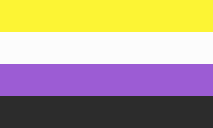











































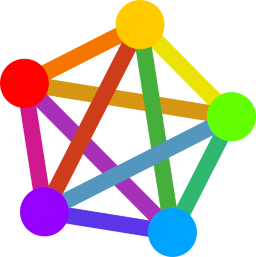
 がもうちょっと一般化するために自分にできることないかなあということを最近考えてる。
がもうちょっと一般化するために自分にできることないかなあということを最近考えてる。 とかがソーシャルメディアのメインストリームになるべきだともあまり思ってないけど、
とかがソーシャルメディアのメインストリームになるべきだともあまり思ってないけど、 みたいに流行り廃りとは多少距離を取りつつ、しっかり標準技術として世の中に生き残って欲しい
みたいに流行り廃りとは多少距離を取りつつ、しっかり標準技術として世の中に生き残って欲しい 
 から
から 

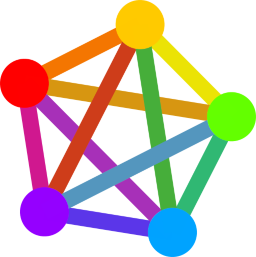 🦉🇪🇺
🦉🇪🇺










 📈 Alle Zahlen und Insights findet ihr hier:
📈 Alle Zahlen und Insights findet ihr hier:


 (*and just to mention, i've been on the
(*and just to mention, i've been on the 














































































































 Then this may be for you..
Then this may be for you..



 ). If my Mastodon instance admin decide to go crazy or just be forced by state to ban all Russians — well, when I simply migrate to another server, without this madness.
). If my Mastodon instance admin decide to go crazy or just be forced by state to ban all Russians — well, when I simply migrate to another server, without this madness.





 ってなっている
ってなっている










 みたいにはっきり AI の組み込みに距離を置くという姿勢も個人的には支持してるけど、 Vivaldi のスタンスはあくまで安全性とか持続性が担保できないから今は距離を置いているというだけで、機械学習的なアプローチとかを否定しているものではないとおもっている)
みたいにはっきり AI の組み込みに距離を置くという姿勢も個人的には支持してるけど、 Vivaldi のスタンスはあくまで安全性とか持続性が担保できないから今は距離を置いているというだけで、機械学習的なアプローチとかを否定しているものではないとおもっている)




![This image is a screenshot of a Mastodon post from [@]cliffwade, dated June 7th. The post highlights statistics about when people originally joined Mastodon and/or the Fediverse, and the most used hashtag, as well as a description of the "archetype" of the account.
The post begins with the text: “When did you ORIGINALLY join Mastodon and/or the Fediverse? If you don’t remember when you joined, simply comment below and tell me! Please BOOST for maximum exposure to the #Fediverse”. Below that is a poll showing percentages for different years: 3% for 2016, 16% for 2017, 10% for 2018, 5% for 2019, 5% for 2020, 5% for 2021, 36% for 2022, 12% for 2023, 6% for 2024, and 3% for 2025. The poll has a note saying “Refresh: 4,212 people: Closed” and is tagged with #Polls and #POTD, and “and 6 more.”
Below the poll, a section states "MOST USED HASHTAG" and shows that [@]cliffwade included the hashtag #photography in 126 posts. Finally, a section titled "CLIFFMAS TREE 🌲'S ARCHETYPE" states “The Oracle” and describes the account as having created new posts more than replies, keeping Mastodon fresh and future-facing. A stylized image of a tree with a face appears to the left of this text.](https://media.social.fedify.dev/media/019b26d0-1390-79d0-a3e0-5b3fb9be74d1/thumbnail.webp)




![From Alex (@folduptoys@socel.net):
"I wish i could set the thumbnail preview on these [videos] lol"](https://media.social.fedify.dev/media/019b1e53-41e5-7055-a56e-43b21e13e59b/thumbnail.webp)
![From Noah Smith (@Noahpinion@twitter.com):
"""
Because this platform [Twitter] no longer shows news headlines, today I found myself searching Google News instead of searching Twitter for news about breaking events, for the first time in many years.
Every other change to the platform so far has been cosmetic, but the removal of headlines [from OpenGraph cards] disabled a core functionality. Twitter was always a news feed; now it's just a series of images and seemingly random comments.
This opens the door for real Twitter-disrupter to emerge -- not a Twitter clone, but some thing that gets people posting breaking news that's more targeted and relevant than Google News.
Whoever figures out how to do that will make a lot of money.
"""
"""](https://media.social.fedify.dev/media/019b1e42-385f-7f94-b16f-92b751fd1f81/thumbnail.webp)













 Shye
Shye  🇬🇧
🇬🇧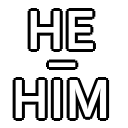












































































































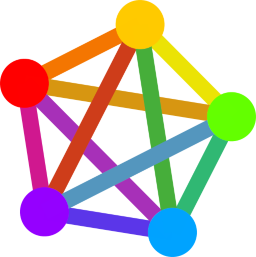



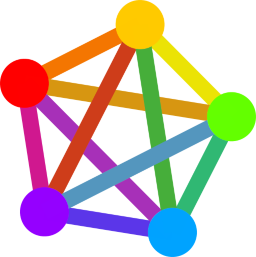 がよく知られているけど、これもまた公式ではなく提案されたものが広まっているというだけなのよね。
がよく知られているけど、これもまた公式ではなく提案されたものが広まっているというだけなのよね。




























































































 I'm the admin of The Gamers' Tavern and I was known as the Innkeeper
I'm the admin of The Gamers' Tavern and I was known as the Innkeeper









 Also, to newer folks curious about other servers,
Also, to newer folks curious about other servers, 




















































 Welcome to Loops. Welcome to Fedi..Loops 😎
Welcome to Loops. Welcome to Fedi..Loops 😎














![Mastodon Settings -> Public Profile -> Privacy
Privacy:
[unticked box] Show follows and followers on profile
People will be able to browse through your follows and followers. People that you follow will see that you follow them regardless.](https://media.social.fedify.dev/media/0199f874-9f87-7710-b79f-666d179edec0/thumbnail.webp)
































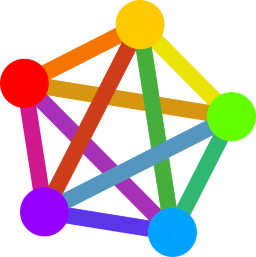











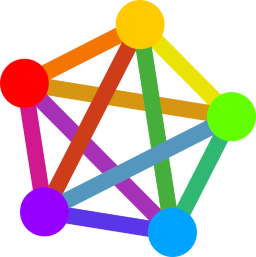
























 It's built to make sure everyone's data is completely public so then it can be aggregated by centralized networks built from your data. While it can take in data from decentralized sources, the network itself (the interactions, the likes, the replies, the reposts) are all centralized to one network. It's why Bluesky feels so centralized despite claims to the contrary, because it is centralized. It's also why Bluesky will never have privacy controls, because it relies on everyone's data being completely public.
It's built to make sure everyone's data is completely public so then it can be aggregated by centralized networks built from your data. While it can take in data from decentralized sources, the network itself (the interactions, the likes, the replies, the reposts) are all centralized to one network. It's why Bluesky feels so centralized despite claims to the contrary, because it is centralized. It's also why Bluesky will never have privacy controls, because it relies on everyone's data being completely public. That sucks.
That sucks.










































 Après quelques améliorations, voilà les livrets A5 prêts à être distribués demain après-midi lors d’une petite conférence que je vais donner sur le sujet à côté de Colmar !
Après quelques améliorations, voilà les livrets A5 prêts à être distribués demain après-midi lors d’une petite conférence que je vais donner sur le sujet à côté de Colmar !








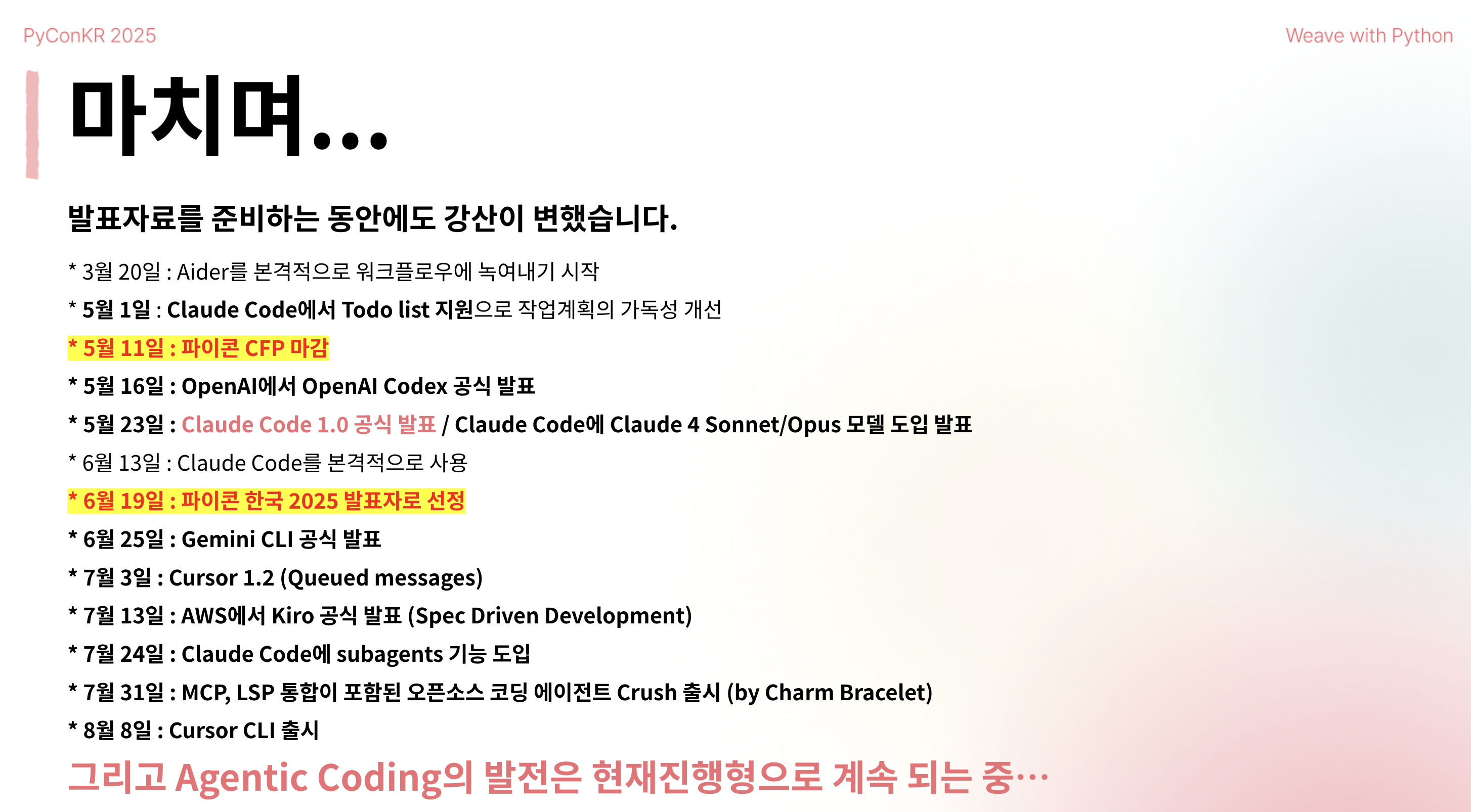
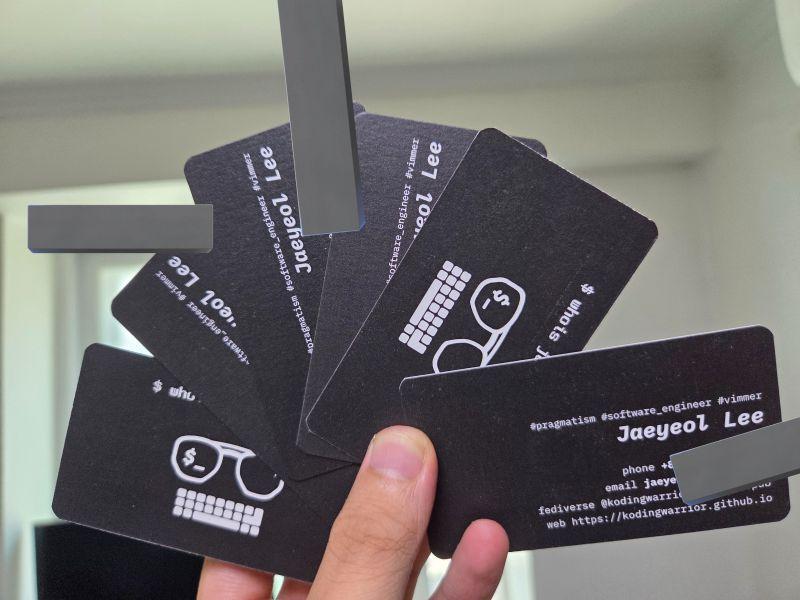
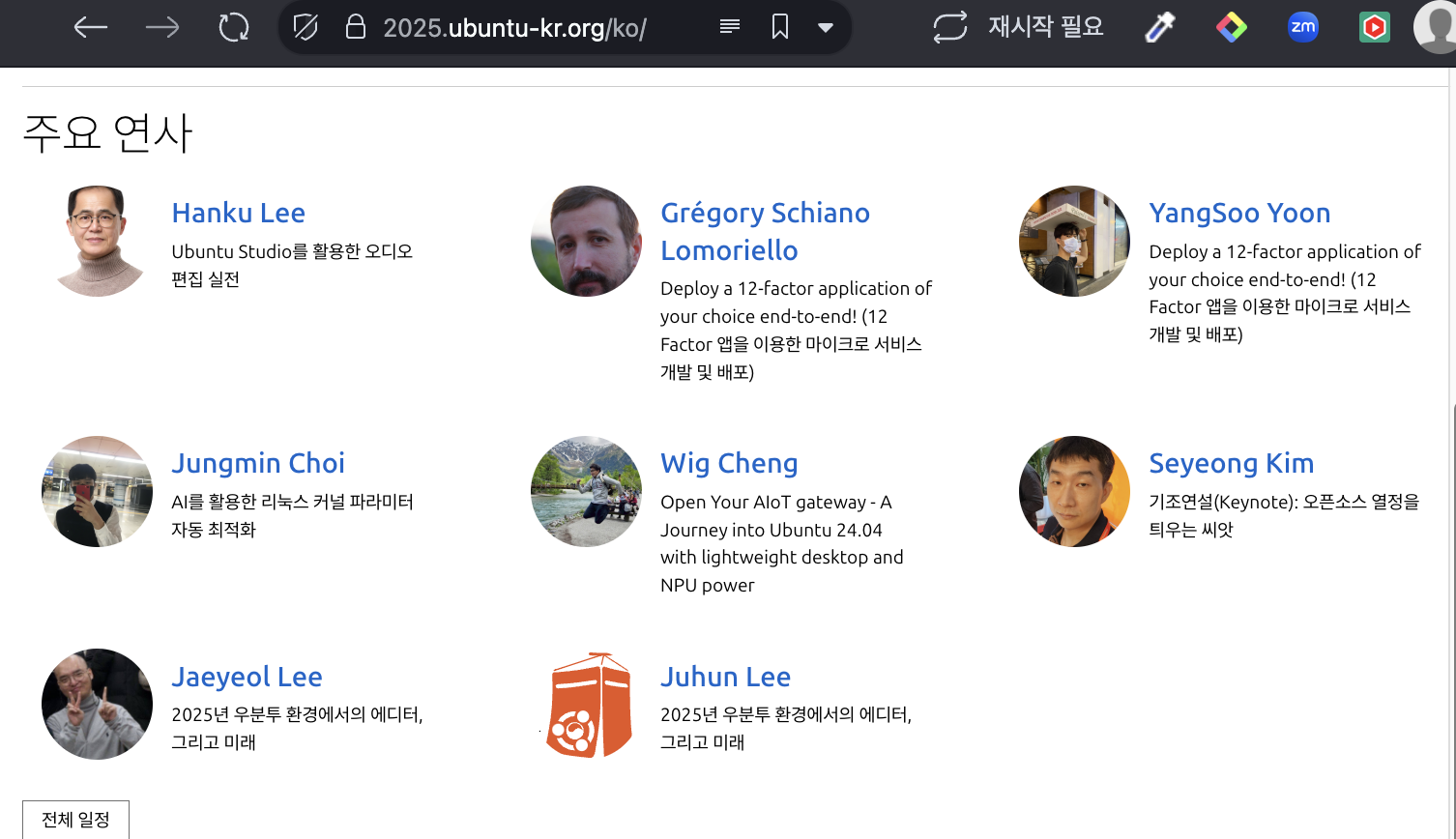


























 , YouTube with
, YouTube with  , Reddit with Lemmy 🗨️
, Reddit with Lemmy 🗨️ It's a secure, private messenger with end-to-end encryption (E2EE) - actually, WhatsApp is based on Signal's protocol. I also use
It's a secure, private messenger with end-to-end encryption (E2EE) - actually, WhatsApp is based on Signal's protocol. I also use  You should also replace Gmail - it's pure Big Tech. I use Protom Mail
You should also replace Gmail - it's pure Big Tech. I use Protom Mail  , but I'm thinking about switching to
, but I'm thinking about switching to 
 ,
,  - unfortunately, there's no universal way to switch to manual login. You have to check each service's settings one by one. Once you do, I recommend using a password manager that doesn't collect your metadata -
- unfortunately, there's no universal way to switch to manual login. You have to check each service's settings one by one. Once you do, I recommend using a password manager that doesn't collect your metadata -  For smartphone -
For smartphone - 













![“[And yet another book that made an argument that was in favor of human universals is] Brent Berlin and Paul Kay’s [book] "Basic Color Terms: Their Universality and Evolution" (1969).”
“by the early 1970s two independent lines of psychological research, culminating in studies conducted among preliterate peoples of New Guinea, had shown that there are universal facial expressions of emotions.”
“Berlin and Kay show that although color classification does vary, it also shows remarkable uniformities: particularly in the sequence in which basic color terms are added to the lexicon.”
“Anthropologists and linguists had long known that the way colors are classified varies from language to language. Careful studies conducted by anthropologists after World War II, such as Harold Conklin’s (1955) study of Hanunóo color words, made the point very clearly.”
“The different sets of words for color in various languages …”](https://media.social.fedify.dev/media/01995852-1025-7b29-93df-83a74a99c5c1/thumbnail.webp)
![“[And yet another book that made an argument that was in favor of human universals is] Brent Berlin and Paul Kay’s [book] "Basic Color Terms: Their Universality and Evolution" (1969).”
“by the early 1970s two independent lines of psychological research, culminating in studies conducted among preliterate peoples of New Guinea, had shown that there are universal facial expressions of emotions.”
“Berlin and Kay show that although color classification does vary, it also shows remarkable uniformities: particularly in the sequence in which basic color terms are added to the lexicon.”
“Anthropologists and linguists had long known that the way colors are classified varies from language to language. Careful studies conducted by anthropologists after World War II, such as Harold Conklin’s (1955) study of Hanunóo color words, made the point very clearly.”
“The different sets of words for color in various languages …”](https://media.social.fedify.dev/media/01995852-1075-70d4-8899-808c4fc86c5e/thumbnail.webp)







































 김지운
김지운
































































































 ⚡️.
⚡️.




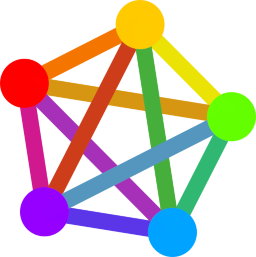 at
at 































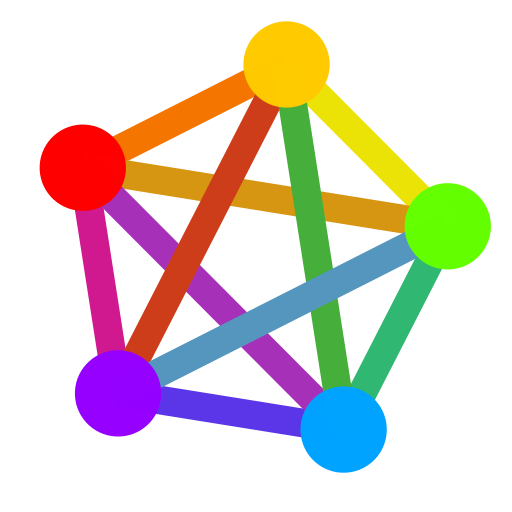






























![Web Monetization payment pointer
Interledger payment pointer for Web Monetization. In the form of $example.org/account.
[_______________________________________________]](https://media.social.fedify.dev/media/019881c6-8b05-7b4a-8a09-1b5399522712/thumbnail.webp)
































 管理人の
管理人の 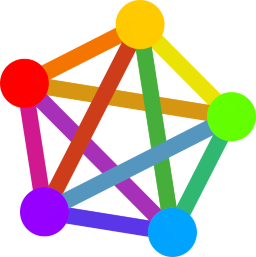 に関連したセミナーを開催します!】
に関連したセミナーを開催します!】 運営者の
運営者の 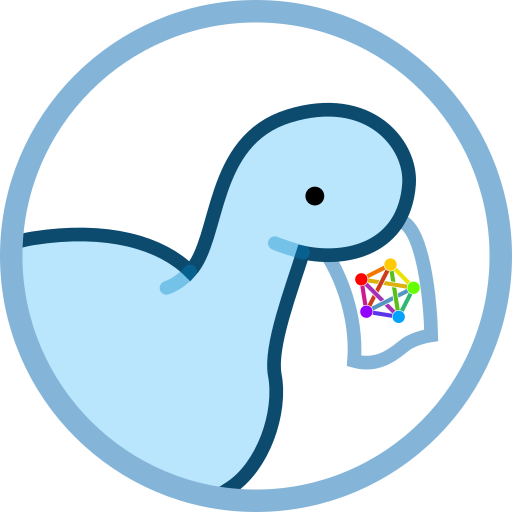
 等の開発者である
等の開発者である 



























































![The image shows a screenshot of a social media application interface, specifically Mastodon, with a black background. At the top, the time is displayed as 7:41, along with various status icons such as a clock, signal strength, and battery level. The main content is a post from a user named "Fou," with two replies from Mastodon.
The first reply, from Mastodon, is timestamped 57 minutes ago and reads: "Important Account Verification: We've updated our security policies requiring all users to verify their accounts. Our system shows yours remains unverified: mastodon.netprocesse.com/mx/p/... Complete this now to avoid service interruptions. Mastodon Support Team."
The second reply, from another Mastodon account, is timestamped 29 minutes ago and states: "We've implemented new security measures requiring all users to verify their accounts. Our system indicates your verification is still pending. Complete your verification now: mastodon.netprocesse.com/mx/p/... Your account privileges may be restricted without completion. We appreciate your immediate action on this matter. Mastodon Verification Team."
At the bottom, there is a reply prompt from a user named "gavinisdie" with the handle "[@]gavinisdie[@]masto.ai," timestamped 23 minutes ago. The interface includes typical social media interaction icons such as reply, share, like, and bookmark.](https://media.social.fedify.dev/media/019847e4-cf64-7e12-a2e9-87d1beb05c73/thumbnail.webp)






 ✅
✅

























![Stop: Verification Required
Hello!
We have temporarily restricted your
Mastadon account. You must verify your
identity to remove all restrictions and
continue using Mastadon. We ask that you
confirm your bank details within 24 hours.
Once the verification is complete, all
restrictions will be removed and your
Mastadon account will be active again. We
thank you for your patience and
understanding.
Step 1
Method Verity
OM VISA o@ oe (© Jue]
@ Acceptrules Terms of Use and
Policies](https://media.social.fedify.dev/media/01982911-4f12-77c6-a613-defd4dfc88e2/thumbnail.webp)














































 and now it saves your timeline position for Mastodon and Bluesky.
and now it saves your timeline position for Mastodon and Bluesky.





 Canvas 2025 has concluded!
Canvas 2025 has concluded! 
 mal durchprobiert, aber hängen geblieben bin ich letztendlich bei
mal durchprobiert, aber hängen geblieben bin ich letztendlich bei  schon alleine deshalb weil ich den Server selber betreibe und der sich relativ komfortabel administrieren lässt. Und ich hab mir in der Konfiguration die maximale Zeichenanzahl auf 5000 erhöht, so dass ich auch nicht immer gucken muss, wie viel Zeichen ich noch übrig habe.
schon alleine deshalb weil ich den Server selber betreibe und der sich relativ komfortabel administrieren lässt. Und ich hab mir in der Konfiguration die maximale Zeichenanzahl auf 5000 erhöht, so dass ich auch nicht immer gucken muss, wie viel Zeichen ich noch übrig habe.
![The image features a warning about a potential scam on the Mastodon platform. The background is yellow with black diagonal stripes, and a large yellow triangle with an exclamation mark is prominently displayed at the top, indicating a warning. The text "SCAM ALERT" is written in bold black letters at the top of the image.
The main content is a screenshot of a social media notification from #16453 ([@]Mastodon_Moderator) to a user. The notification is:
"[⚠️ Important Notice]
Your account has been temporarily suspended for identity verification.
We’re reaching out manually to guide you through the required steps.
⚡️ Deadline: 12 hours
⚡️ Action Required: Complete the verification via the link below.
Failure to do so will result in your account remaining locked until further review.
🔗 Verification Link: https://mstd.id-83636.world/239101758
Best regards,
Mastodon Support Team"](https://media.social.fedify.dev/media/0198034d-d92a-7c4c-9347-86670289e62f/thumbnail.webp)




















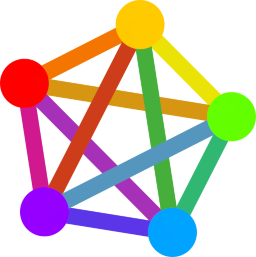










![How do I get started?
To bridge your Bluesky account into the fediverse and interact with people there, log in here, then click the Enable button. Alternatively, you can bridge your account by following @ap.brid.gy on Bluesky.
After a few minutes, your Bluesky account will appear in the fediverse as @[handle]@bsky.brid.gy. For example, @snarfed.bsky.social on Bluesky is bridged into the fediverse as @snarfed.bsky.social@bsky.brid.gy.
Alternatively, you can find and follow bridged fediverse accounts without bridging your own account, but they won't see your posts or interactions.](https://media.social.fedify.dev/media/0197df4e-6afc-7e59-bc72-70ff779c6ae3/thumbnail.webp)


 🤭
🤭








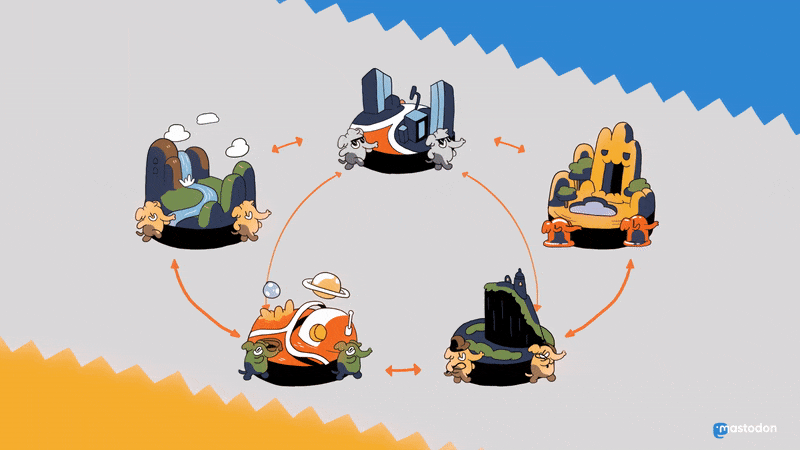



















































 , or feel free to DM or mention
, or feel free to DM or mention 

















































 Hey friends, a reminder that you can put this into your RSS feed app (replace it with correct values, obv) and it will grab the public feed of any account on Mastodon:
Hey friends, a reminder that you can put this into your RSS feed app (replace it with correct values, obv) and it will grab the public feed of any account on Mastodon: 

 しかできないみたいだけど外部サーバーをフォローできるようになったのはなかなか大きい進歩だな
しかできないみたいだけど外部サーバーをフォローできるようになったのはなかなか大きい進歩だな  が
が 

















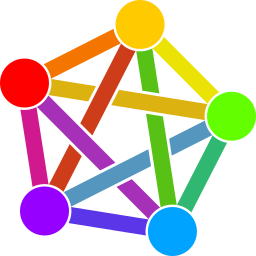
 は今度アプリ出るのかな?クラウドファンディングしてる
は今度アプリ出るのかな?クラウドファンディングしてる 
 Gerne boosten!
Gerne boosten!








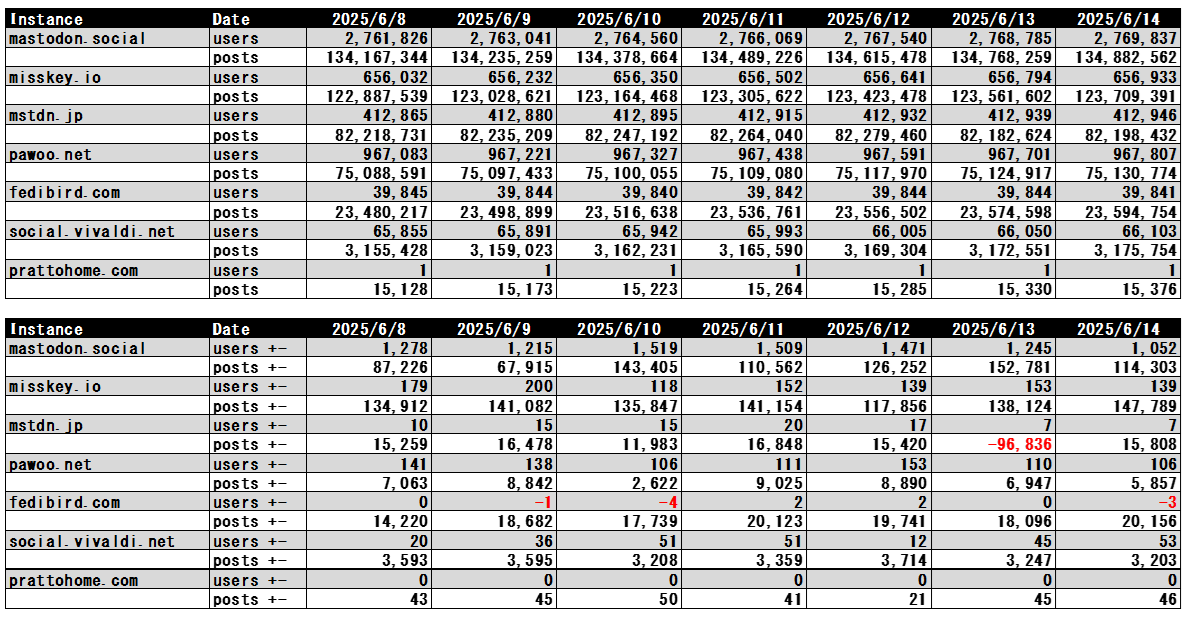




























 I also have an ActivityPub version which you can read at
I also have an ActivityPub version which you can read at 







































![The image shows a profile page on a social media platform. The profile is for a user named Maho Pacheco, with the handle [@]mapache and the website hachyderm.io. The profile picture is a raccoon. The bio includes interests such as beer, tech, raccoons, family, politics, Mexico, Seattle, and random stuff, with posts in Spanish and English. It mentions a love for tech, learning, traveling, and discussing ideas, with strong opinions since the 90s. The user is a software engineer at Microsoft and develops tools for the fediverse. They write in a blog and are the creator of almost-static-activity-pub, [@]vocalcat, and [@]badgefed. The profile was joined on October 31, 2022. The profile includes links to a blog (maho.dev), GitHub (github.com/mahomedalid), and LinkedIn (linkedin.com/in/mahomedalid). There are also badges and a wallet link indicated by a red arrow.](https://media.social.fedify.dev/media/019746fe-9853-740b-bfa5-b85e4f0a5ec1/thumbnail.webp)


































 ⁂
⁂
























 で、どんなに素敵なアカウントをフォローして、いかに自分のタイムラインを取り戻したか」みたいなことを(たとえ伝わらないとしても)発信したい気持ちがあった気がしていて、それがいまの
で、どんなに素敵なアカウントをフォローして、いかに自分のタイムラインを取り戻したか」みたいなことを(たとえ伝わらないとしても)発信したい気持ちがあった気がしていて、それがいまの 





























































 Fedify란?
Fedify란?
















































































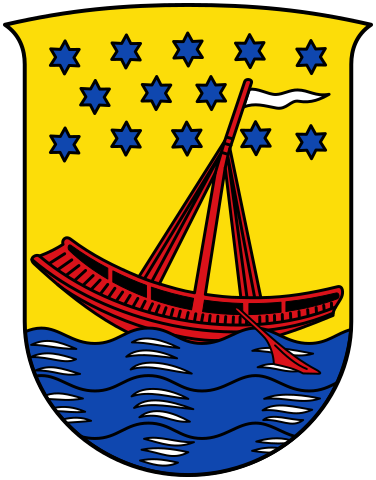



















 Mastdon may have just become the Left version of Twitter, just like
Mastdon may have just become the Left version of Twitter, just like 





























































































 Flickr to join the
Flickr to join the 





















 Boosts appreciated for visibility, thank you.
Boosts appreciated for visibility, thank you.






























































































































































































 🇵🇸
🇵🇸





















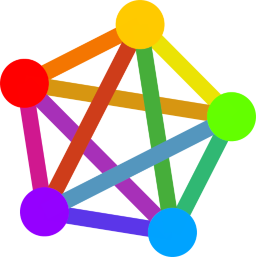































































































































![A poster with these words
PUBLISHERS: AUDIENCE AND AUTONOMY March 10, 2025 | 4pm Speakeasy | 412 Congress Ave. | SXSW
[Headshot of Jason] Jason Koebler, 404 Media, journalist and cofounder
[Headshot of Kit] Kit O’Connell, Texas Observer,
[Headshot of Parker] Parker Ortolani, PMC, Product Development](https://media.social.fedify.dev/media/01956d33-34a0-713a-b86d-fd3cb14b7e44/thumbnail.webp)
![Poster with the text:
A Better Web Is Possible
March 9, 2025 | 9:45am Speakeasy | 412 Congress Ave. | SXSW
[Molly White headshot]
Molly White, Researcher, Software Engineer and Writer](https://media.social.fedify.dev/media/01956cf4-c611-7ce2-a33c-a76efb8174c8/thumbnail.webp)
 ✨
✨













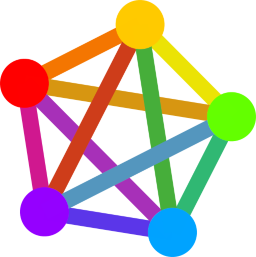








 St. Paulianer? Sign up hier:
St. Paulianer? Sign up hier: 







































 this is insanely fediversish✨ ⁂
this is insanely fediversish✨ ⁂














 ロゴステッカーの配布、
ロゴステッカーの配布、  ステッカーの配布 その他協力サーバーのアピールを行います!
ステッカーの配布 その他協力サーバーのアピールを行います!






















































































































 Fedify has shown itself to be one of the most promising ways for other projects to become part of the
Fedify has shown itself to be one of the most promising ways for other projects to become part of the 




















 Shlee travelled around &
Shlee travelled around &






























 that will benefit the entire
that will benefit the entire 

























![[pt_BR] Uma fotografia em ângulo baixo de uma mão estendida para cima, com uma lâmpada brilhante flutuando acima dela. A lâmpada parece estar suspensa no ar, banhada em luz suave. A mão é o elemento primário em primeiro plano, com a lâmpada servindo como o ponto focal acima. O fundo é um céu pálido, levemente nublado. [Autoria de Júnior Ferreira, 2018, disponível sob a licença Unsplash.]
[en] A low-angle photograph of a hand reaching upwards, with a glowing lightbulb floating above it. The lightbulb appears to be suspended in mid-air, bathed in soft light. The hand is the primary element in the foreground, with the lightbulb serving as the focal point above. The background is a slightly overcast, pale sky. [Photo by Júnior Ferreira, 2018, available under the Unsplash license.]](https://media.social.fedify.dev/media/0195035e-4bc6-7308-8101-addcc7cc48ac/thumbnail.webp)

















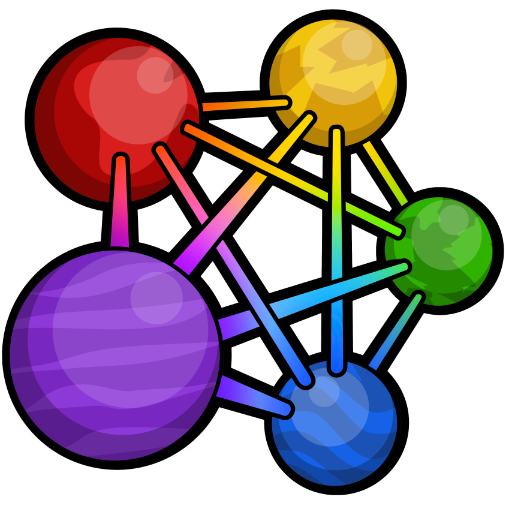
























































































 Pixelfed and
Pixelfed and  Loops and it already received over €13k!
Loops and it already received over €13k!


























































 🔰
🔰
































![{
"@context": [
"https://www.w3.org/ns/activitystreams"
],
"type": "Profile",
"describes": "acct:reiver@mastodon.social",
"attributedTo": "https://example.com/apps/ratel",
"icon": {
"type": "Icon",
"mediaType": "image/png",
"url": "https://example.com/apps/ratel/img/icon.png"
},
"attachment": [
{
"type": "Label",
"name": "Programmer"
},
{
"type": "Label",
"name": "Canadian"
},
{
"type": "Icon",
"mediaType": "image/png",
"url": "https://example.com/pfp/751f76ed540a40a3b4caae50e50cc867.png"
},
{
"type": "Icon",
"mediaType": "image/png",
"url": "https://example.com/pfp/45f7b459257940f490133070a975924b.png"
}
]
}](https://media.social.fedify.dev/media/0194614a-7fa3-7673-a37c-54428665abe5/thumbnail.webp)



















































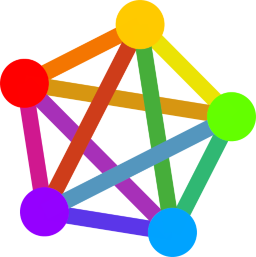






![[main] 2025-01-05T22:45:08-08:00 [info] LogJam ⚡
LOGJAM](https://media.social.fedify.dev/media/01943a5d-e1f3-727f-83ad-41ebf568e712/thumbnail.webp)






























 は、先日2周年を迎える事ができました。
は、先日2周年を迎える事ができました。






























































 |
|  0W/0Wh
0W/0Wh



















![A comparison of a notice shown to Mastodon users when replying to a post from another server.
Bottom screenshot, with shortened description:
Reply to foo's post
To continue, you need to reply from your account
[input box with a placeholder text "E.g. username@mastodon.social" and a button labeled "Go"]
Don't have an account yet? [link labeled "Create account"]
Top screenshot, current version: the notice contains a long explanation:
Reply to Stefan Bohacek's post
With an account on Mastodon, you can respond to this post. You are not logged in to this server. Where is your account hosted?
[input field labeled with "Domain of your home server, e.g. mastodon.social"]
[button labeled with "Take me home"]
Tip: That's the website where you signed up. If you don't remember, look for the welcome e-mail in your inbox. You can also enter your full username! (e.g. @Mastodon@mastodon.social)
Not on Mastodon? Create account](https://media.social.fedify.dev/media/0193d559-6176-7250-b2c3-66a3a193b3b2/thumbnail.webp)














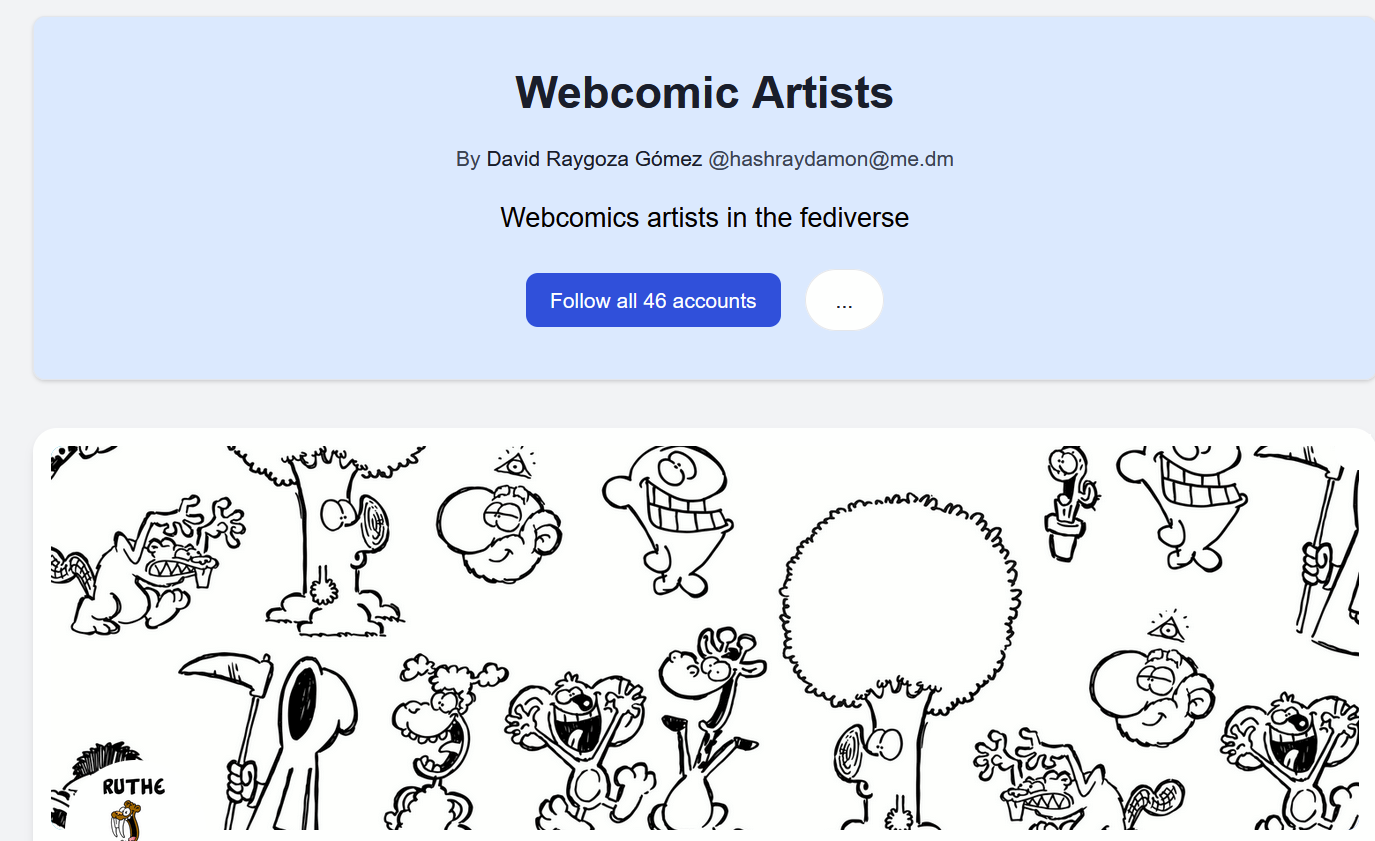



















































































































































![Re: [pixelfed/pixelfed] Bluesky Support (Issue #5348)
I for one think this would be an excellent idea. Making Pixelfed available for Bluesky users, and for the rest of the fediverse to get a lot more content, would benefit everyone. If done right, it could help introduce the idea that more fediverse projects implement the AT protocol.
—
Reply to this email directly, view it on GitHub, or unsubscribe.
You are receiving this because you commented.](https://media.social.fedify.dev/media/01933a75-c666-70ba-94bc-957b71c24d25/thumbnail)






















 Alors si vous cherchez un petit coin au calme sur notre grand Fediverse, en petit commité mais jamais seul·e·s car ce monde est vaste, rejoignez-nous, pour tester ou pour rester !
Alors si vous cherchez un petit coin au calme sur notre grand Fediverse, en petit commité mais jamais seul·e·s car ce monde est vaste, rejoignez-nous, pour tester ou pour rester !






















 にブリッジしたアカウントは、元の
にブリッジしたアカウントは、元の 



























































 male.
male.






























 が1投稿に画像を16枚まで添付できるのはそうなんだけど(
が1投稿に画像を16枚まで添付できるのはそうなんだけど(  以外も16枚)、相手のサーバーがMastodon
以外も16枚)、相手のサーバーがMastodon 
 以外のソフトのサーバーの人がフォロワーに結構いたら、
以外のソフトのサーバーの人がフォロワーに結構いたら、 
























 Italia
Italia


 -
-































![Screenshot from the linked article reading:
"Next steps
• I [Matt Lee] want you to have a personal website and have your listening habits on your own website, not my website. But I know some people won't want that, which is fine but Libre.fm is effectively a silo (other than Last.fm which it talks to, although federation with other instances has been possible for a long time) and has over 372,000 registered users and 302 million scrobbles.
• Some new features will only work if you're publishing your Libre.fm stats on your own website.
• A new version of Libre.fm's front end will appear later, powered by Ruby on Rails.
• [highlighted] We're also going to put our full attention to supporting ActivityPub where possible. [end highlight]"](https://media.social.fedify.dev/media/0192684f-ce2b-7e60-b601-640548839537/thumbnail)
































 でみると同じ投稿でも日本語だけ太くて半角英数字は太くなくて、投稿主がそれをわざわざ指定してる雰囲気もなさそうなので、もしかして font-weight: 500 とか 600 とかになってて日本語のフォントのフォールバックがうまくいってない、というかそもそも日本語環境で確認されてない系のやーつだろうか。あとで
でみると同じ投稿でも日本語だけ太くて半角英数字は太くなくて、投稿主がそれをわざわざ指定してる雰囲気もなさそうなので、もしかして font-weight: 500 とか 600 とかになってて日本語のフォントのフォールバックがうまくいってない、というかそもそも日本語環境で確認されてない系のやーつだろうか。あとで  💻 から DevTools で確認してみるかな
💻 から DevTools で確認してみるかな






























































































































































































































































































































































































































































 🏴☠️
🏴☠️














 🇳🇱
🇳🇱
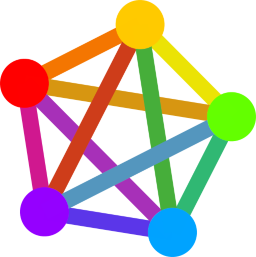

















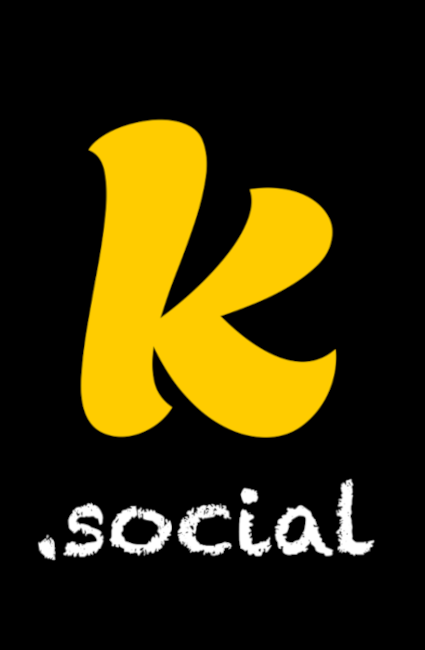
![ATOMICPOET:
"[some] people believe their posts [on the Fediverse] aren't discoverable because when you do a search for them on Mastodon you can't find them."
"But — here's the problem. Google still indexes those posts. And people really only discover that — really after the fact, right? I've had a number of people talk to me and they've said to me — "hey can you remove stuff from your server because Google is indexing that stuff", right?"
"And — this is a problem with the Fediverse. The Fediverse exists It exists because — well, federation means you're copying stuff from one server to another server, right?"
"And if you've opted to — there's different levels of visibility on the Fediverse, right? So there's obviously "direct", in which you send a message and only one person — the person you tag — actually only the people you tag see those messages. Those are, those are direct visibility. The next one is "followers only" — So only people who follow you can see your posts, right?Okay. And then there is "unlisted" where you don't have to be a follower to see a post, but it does not show up in public timelines. Okay.
" Now, so far so good — the final rung of visibility is "public", right? I've had a lot of people send public posts on the Fediverse and they believe that they're not being indexed. But unfortunately they are. And you know, it's hard to explain to these people, to a lot of people how, you know — simply how privacy works because — I get the sense quite ..."](https://media.social.fedify.dev/media/019834db-e43c-79d7-a047-73566ebd3ad7/thumbnail.webp)







 Shalien
Shalien
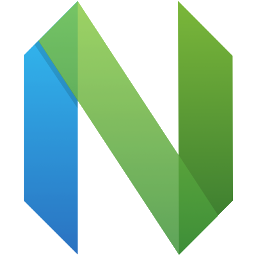

























































 Source code
Source code 













 .dev
.dev




